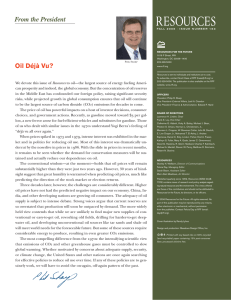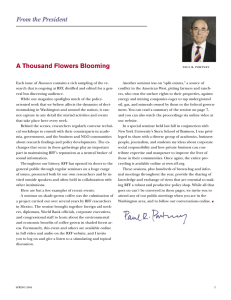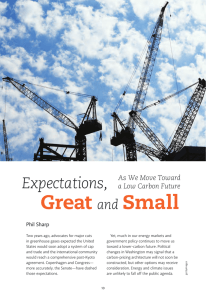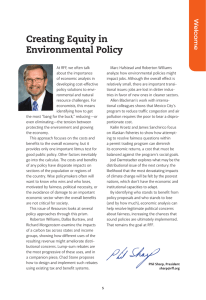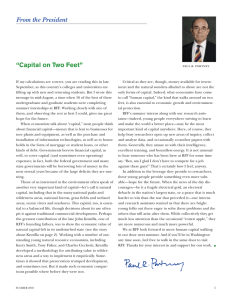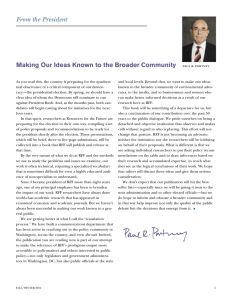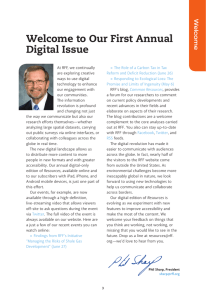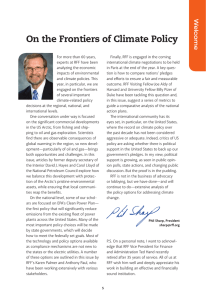In Pursuit of a Greener Path W elcome
advertisement
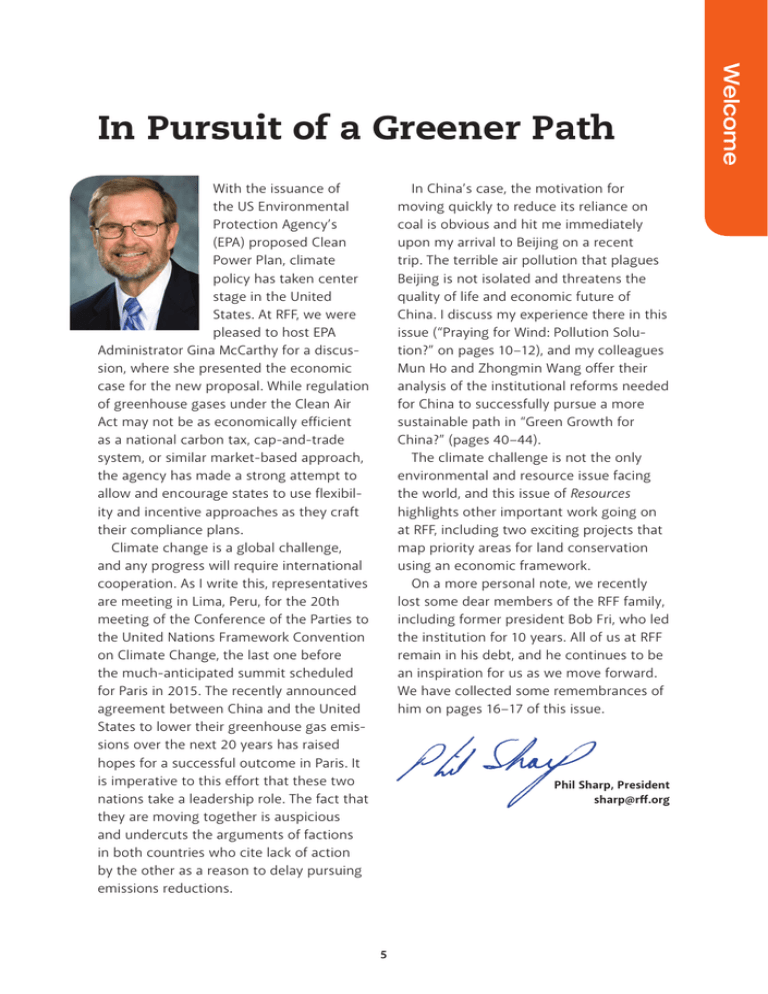
With the issuance of the US Environmental Protection Agency’s (EPA) proposed Clean Power Plan, climate policy has taken center stage in the United States. At RFF, we were pleased to host EPA Administrator Gina McCarthy for a discussion, where she presented the economic case for the new proposal. While regulation of greenhouse gases under the Clean Air Act may not be as economically efficient as a national carbon tax, cap-and-trade system, or similar market-based approach, the agency has made a strong attempt to allow and encourage states to use flexibility and incentive approaches as they craft their compliance plans. Climate change is a global challenge, and any progress will require international cooperation. As I write this, representatives are meeting in Lima, Peru, for the 20th meeting of the Conference of the Parties to the United Nations Framework Convention on Climate Change, the last one before the much-anticipated summit scheduled for Paris in 2015. The recently announced agreement between China and the United States to lower their greenhouse gas emissions over the next 20 years has raised hopes for a successful outcome in Paris. It is imperative to this effort that these two nations take a leadership role. The fact that they are moving together is auspicious and undercuts the arguments of factions in both countries who cite lack of action by the other as a reason to delay pursuing emissions reductions. In China’s case, the motivation for moving quickly to reduce its reliance on coal is obvious and hit me immediately upon my arrival to Beijing on a recent trip. The terrible air pollution that plagues Beijing is not isolated and threatens the quality of life and economic future of China. I discuss my experience there in this issue (“Praying for Wind: Pollution Solution?” on pages 10–12), and my colleagues Mun Ho and Zhongmin Wang offer their analysis of the institutional reforms needed for China to successfully pursue a more sustainable path in “Green Growth for China?” (pages 40–44). The climate challenge is not the only environmental and resource issue facing the world, and this issue of Resources highlights other important work going on at RFF, including two exciting projects that map priority areas for land conservation using an economic framework. On a more personal note, we recently lost some dear members of the RFF family, including former president Bob Fri, who led the institution for 10 years. All of us at RFF remain in his debt, and he continues to be an inspiration for us as we move forward. We have collected some remembrances of him on pages 16–17 of this issue. Phil Sharp, President sharp@rff.org 5 Welcome In Pursuit of a Greener Path




